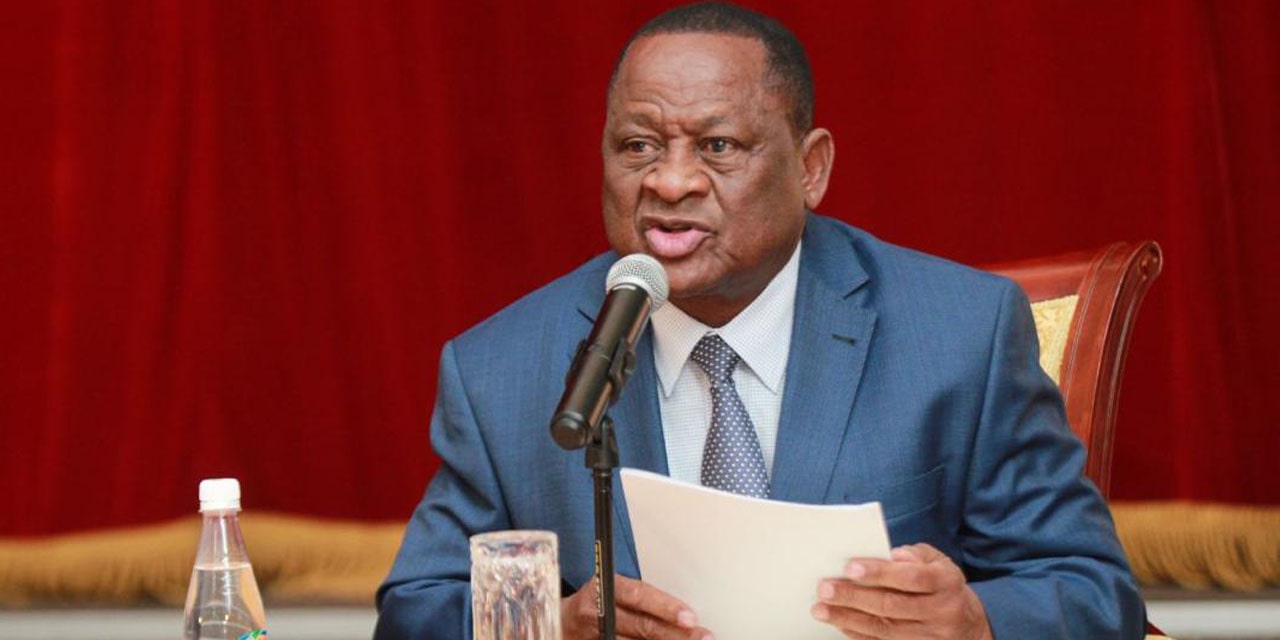Martin Endjala
The Ministry of Health and Social Services (MoHSS), on Monday launched a project aimed at addressing malnutrition, which is said to have become a national concern.
Line minister Dr Kalumbi Shangula revealed this on Monday, stating that Omaheke, Khomas, and Kunene regions are among the targeted regions.
Stressing that the scourge of malnutrition is being experienced in several communities in Namibia, and its negatively impacting lives.
He said the launch of the project marks a significant step in their collective efforts to combat malnutrition.
Shangula announced that a funding of U$500 000 from the Japanese government has been availed, aimed at significantly improving access to quality nutrition and protection services for vulnerable populations in the Omaheke, Khomas, and Kunene Regions.
While it is a complex matter, he said the simplest understanding of malnutrition refers to the lack of proper nutrition, caused by not having enough to eat, not eating enough of the right food, or the body of the person affected not being able to use the food that one does eat.
“For this reason, dealing with and eradicating malnutrition requires a multisectral, whole-of-government and whole-of-society approach. It is not a matter of one agency or one sector to deal with. It must necessarily be a collaborative effort,” said the minister.
To effectively deal with the challenges, the Shangula alluded that the country must deal with its root causes and not only its manifestations. Since it has to do with a lack of food, explaining that the ministry must ensure that people have access to adequate food.
He added that families and communities should have access to the means, tools, inputs, and land to produce food
Adding that government and private sectors should continue to implement programmes focusing on and targeting vulnerable children. While pointing out that school feeding interventions should be enhanced to assist those in need.
This project, he said, will bring about a positive impact, leading to improved overall health outcomes, reduced vulnerability to diseases, and enhanced cognitive development, thereby paving the way for a healthier, more prosperous future for the inhabitants of these regions.
Omahake region has been experiencing serious cases of malnutrition with several deaths recorded last year.
“With funding (USD 500,000) from the government of Japan, the World Health Organisation (WHO), Namibia is supporting the implement a project titled Increasing Access to Quality Nutrition and Protection Services for Vulnerable Populations including Women and Children in Omaheke, Khomas, and Kunene Regions”, to be implemented from January 2024 to December 2024,” said WHO Officer-In-Charge Mary Brantuo.
She said the main project objective is to increase access to quality nutrition and protection services for vulnerable populations, particularly women and children, and contribute to the reduction of illness, preventable deaths and inequities in the targeted regions.
Meanwhile, Brantuo revealed that on its part, and with funding of U$758,916 from the government of Japan, the Food and Agriculture Organisation of the United Nations (FAO), is working in close collaboration with the Ministry of Agriculture, Water and Land Reform (MAWLR) and Regional Councils.
She says the two parties will implement a project titled emergency response to enhance resilience and mitigate climate-induced Impacts on the livelihoods, food, and nutrition security of the most vulnerable households in Namibia.
Brantuo informed that the project will be implemented in Kavango East, Kavango West, and Ohangwena during the period from March 2024 to March 2025.
Last year, it was reported that 45 children died in the Omaheke region, due to malnutrition.




